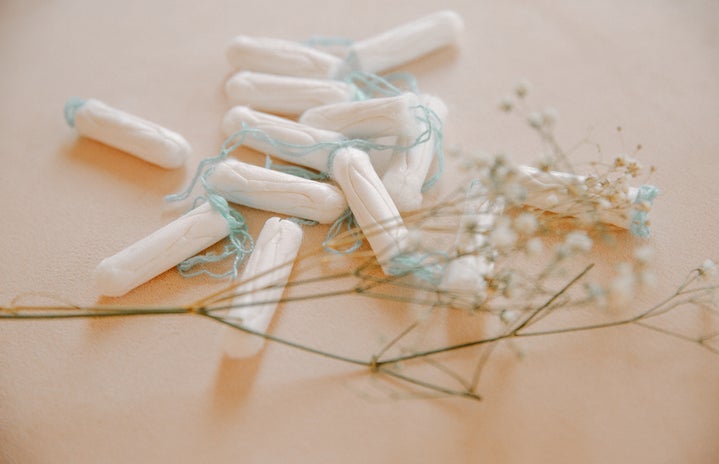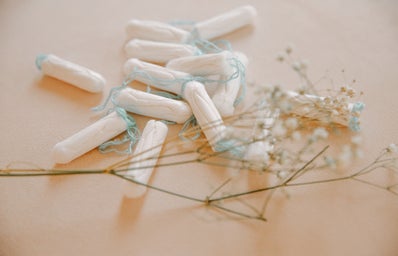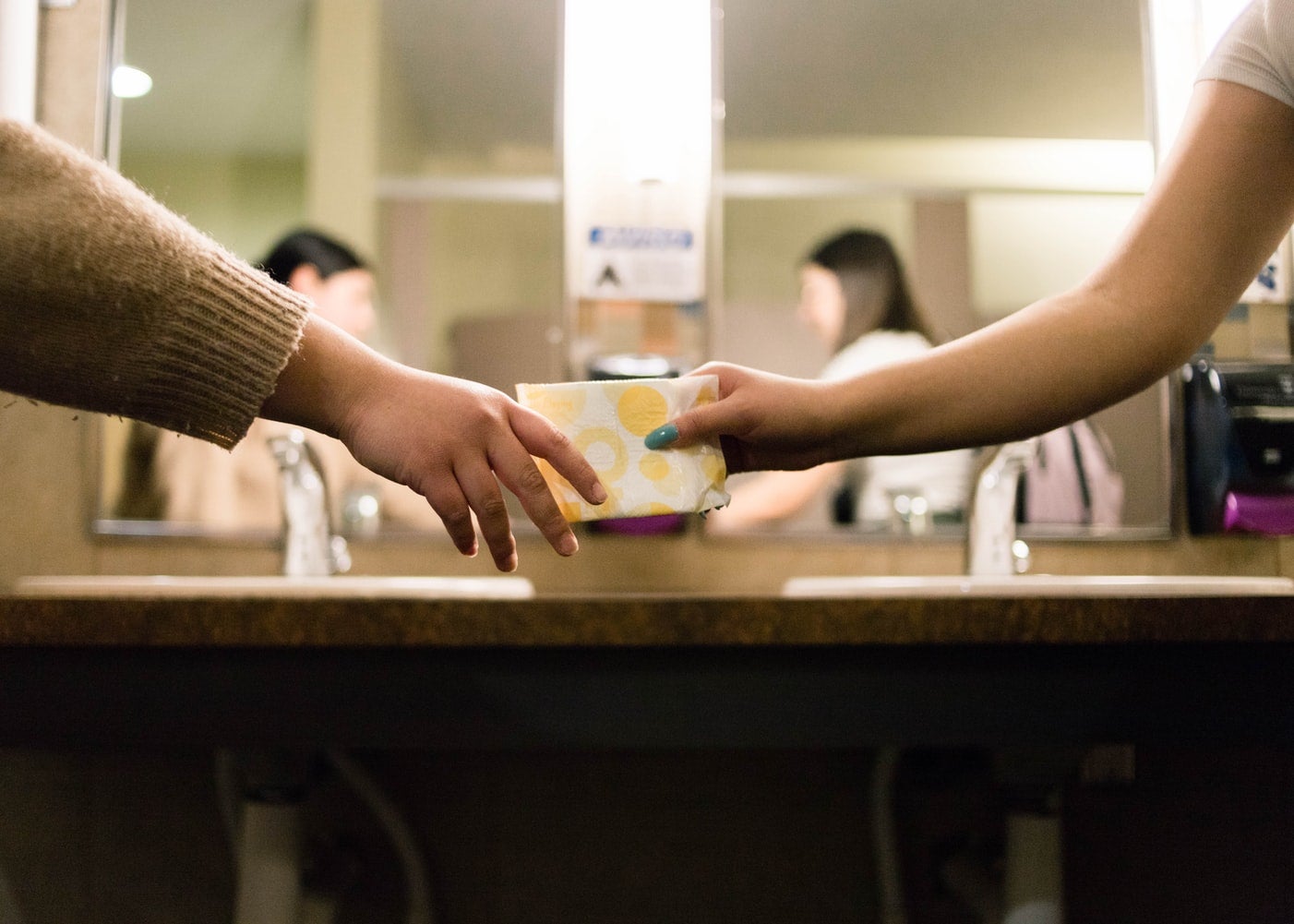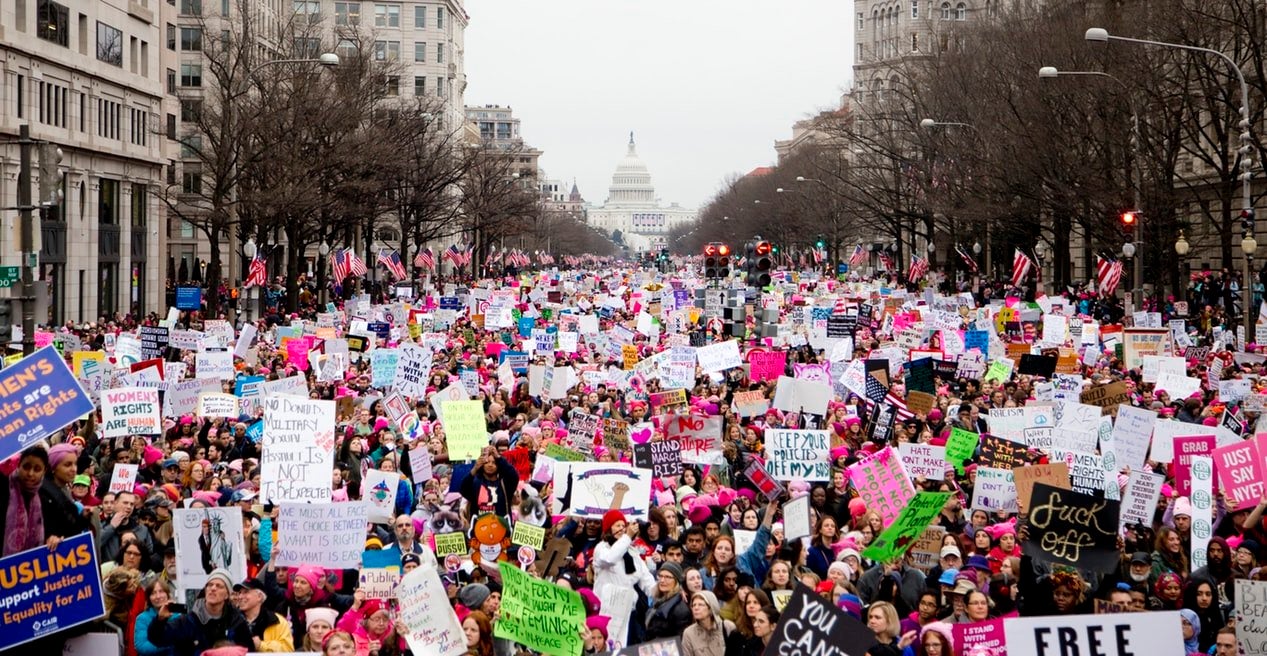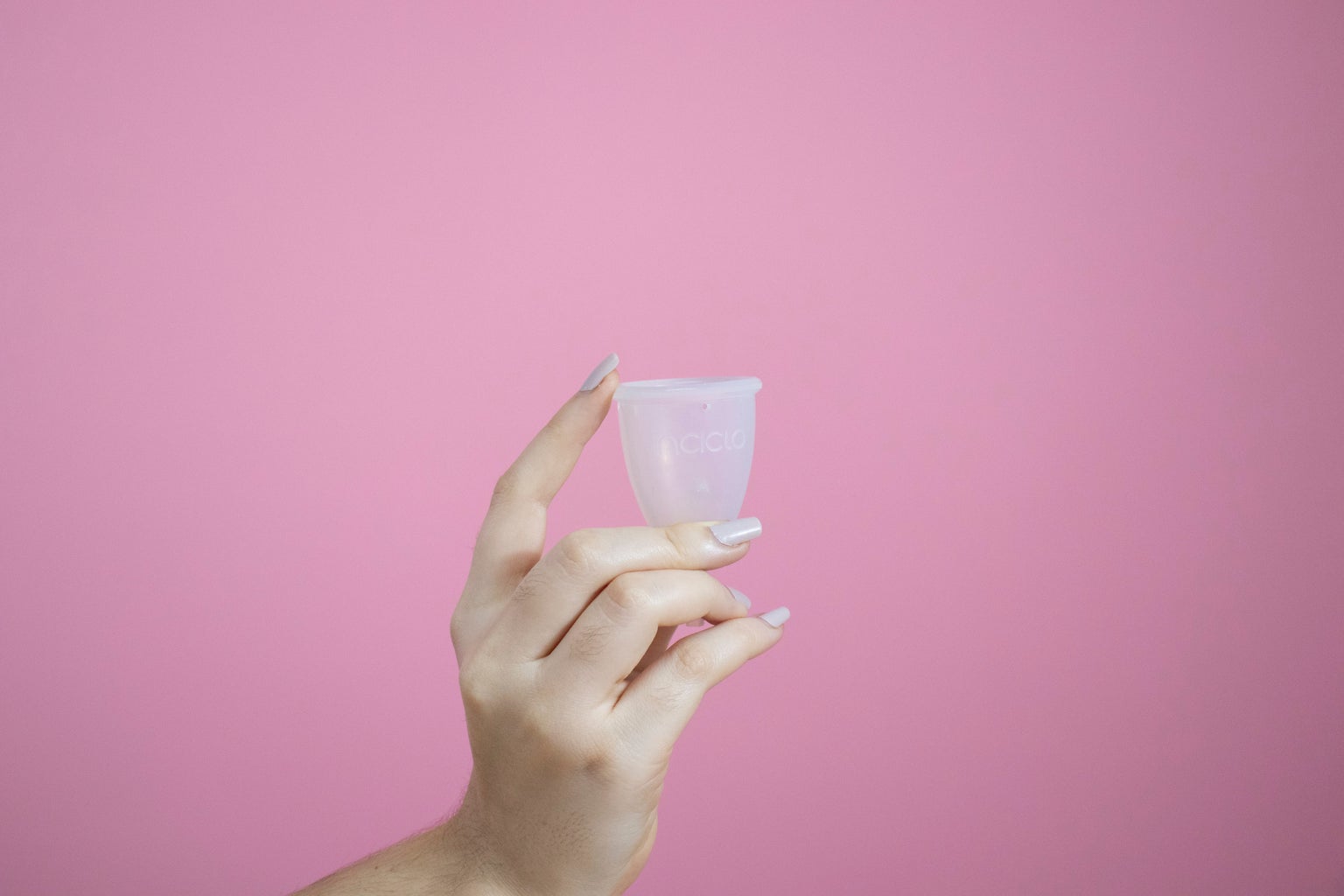I remember the first time I entered a public restroom with free menstrual products. A plastic shelf filled with a decorative display of pads and tampons sat next to the sink, and I couldn’t believe they weren’t asking me to fish a quarter out of the bottom of my purse.
Free pad and tampon dispensers are a more common sight than they were ten years ago, but accessibility to menstrual products is still lacking in most of the world. According to UNICEF, more than two billion people across the globe do not have access to basic sanitation services. Therefore, of the 800 million people who menstruate each day, many do not have access to toilets, handwashing facilities, or waste management, let alone pads or tampons.
This phenomenon, coined “period poverty,” affects not only the economic wellbeing of someone trying to manage their period, but also threatens their dignity and puts them at risk of health issues.
Those who menstruate spend an average of $1,773 in their lifetime just on tampons, according to Global Citizens, and the average American woman spends an additional $100-$225 in tampon taxes. Also referred to as the “pink tax” due to its disproportionate impact on women, the tampon tax is an additional charge on menstrual products because of their classification as “luxury items.”
Abolishing the tampon tax where it is active, including in thirty US states, would not single handedly eradicate period poverty. However, in addition to slightly lessening the financial burden of menstrual products, shifting public opinion away from viewing these products as luxury items will help to destigmatize periods overall.
Combatting period poverty is an ambitious challenge, but there are actions that even college students can take to enhance menstrual equity.
1. Join an Organization
Many organizations exist with the purpose of putting menstrual products into the hands of those in need and advocating for policies that better support those experiencing menstruation.
One example is American University’s chapter of Days for Girls, which works in the DC area and beyond. DfG at AU focuses on creating a comfortable space for students to gather and talk about periods, reproductive health, and women’s rights. Each semester the club hosts guest speakers, screens films, donates period products, and works to advocate for policy changes on the legislative level.
Offering your time and skills to a club or organization dedicated to advancing menstrual equity is a great step towards eliminating period poverty. All it takes is a simple Google search to find an organization to connect with in your area.
2. Write to Your Representatives
Policies that make menstruation more expensive and difficult to navigate are embedded in legislative structures, which means it is imperative to reach out to your representatives to share the importance of enacting new policies.
Emily Fafard, a sophomore at American University and the Vice President of their Days for Girls chapter, has a resume of experience advocating for menstrual equity legislation.
“I’ve learned,” she shares, “that we need to be having this conversation at every level of society. Enacting ambitious menstrual equity legislation like the Menstrual Equity for All Act would require changing how we see menstruation from just a ‘woman’s issue’ to an economic, reproductive, and racial justice issue that includes everyone of every gender identity.”
Emily recently led DfG AU in a Letter Writing event in which members wrote to their representatives encouraging them to support the Menstrual Equity for All Act (H.R. 3614). Currently in the subcommittee on Economic Development, Public Buildings, and Emergency Management, this act would make free period products available in schools and federal buildings, and for incarcerated and houseless individuals.
Reaching out to representatives might seem like a waste of time, but Emily encouraged DfG members that these messages do make a difference. Following the DfG event, several members received responses and follow up messages from their representatives.
3. Donate Reusable Menstrual Products
Companies have begun creating sustainable period solutions, such as menstrual cups and reusable pads. Given the high levels of inaccessibility to menstrual products throughout the world, donating reusable products helps to create a more long term solution than single-use products.
One example is Noble Cup, an eco-friendly, water-saving menstrual cup originally designed for African women. The Noble Cup can be worn for up to twelve hours and during any activity, making it a transformative product that allows girls to live their daily lives without being hindered by their periods.
Recognizing that access to sanitation facilities and water is not universal, the creators of Noble Cup designed the product out of silicone, which can be cleaned with much less water than homemade reusable alternatives.
With every purchase of a Noble Cup, one is donated to a woman in need.
